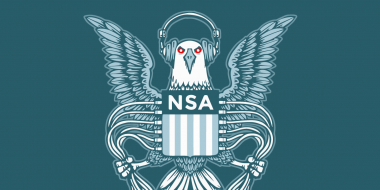Knowing “what the government is up to” is often the first step in ensuring that the government respects the civil liberties of its citizens. Transparency is especially important given the government’s increasingly secretive use of new technologies for law enforcement and national security purposes. From cell phone location tracking, the use of surveillance drones, secret interpretations of electronic surveillance law, and the expanding use of biometrics, EFF wants to hold the government accountable and uphold your digital rights.
To that aim, EFF’s transparency work is dedicated to using federal and state freedom of information laws, the courtroom, and our megaphone to shine light on government activities.
One of the major tools we use is the Freedom of Information Act (FOIA), a federal law that gives people the right to request information kept by federal government agencies. Our team of FOIA lawyers also submit requests on a variety of digital civil liberties issues and often take cases to court when we believe the government is unduly withholding information. But anyone can make a request under FOIA, and you can go here to learn how you can submit your own.
While emerging technologies give the government new tools that threaten citizen civil liberties, technology also has the potential to create a more democratic relationship between public institutions and the citizens they serve. Today, a broad range of new tools are allowing the public to more closely examine government and corporate entities and to hold them accountable for deception, censorship, and corruption. In addition to using freedom of information laws to shed light on government actions, EFF also wants to highlight technologies that help the transparency process —whether it’s making it easier to file and track FOIA requests, websites dedicated to whistleblowing, or open government initiatives that can improve access to information.
Transparency Highlights
FISC Orders on Illegal Government Surveillance
EFF has sued the Department of Justice (DOJ), demanding answers about illegal email and telephone call surveillance at the National Security Agency (NSA).
The FISA Amendments Act (FAA) of 2008 gave the NSA expansive power to spy on Americans’ international email and telephone calls. However, last month, a government...
The Foilies 2018
Recognizing the Year’s Worst in Government TransparencyGovernment transparency laws like the Freedom of Information Act exist to enforce the public’s right to inspect records so we can all figure out what the heck is being done in our name and with our tax dollars. But when a public agency ignores,...
Automated License Plate Readers- ACLU of Southern California & EFF v. LAPD & LASD
EFF and the ACLU of Southern California each sent California Public Records Act requests to the Los Angeles Police Department and the Los Angeles County Sheriff’s Department seeking documents about each agency's use of Automated License Plate Reader (ALPR) systems—sophisticated cameras mounted on squad cars and street poles that read...






